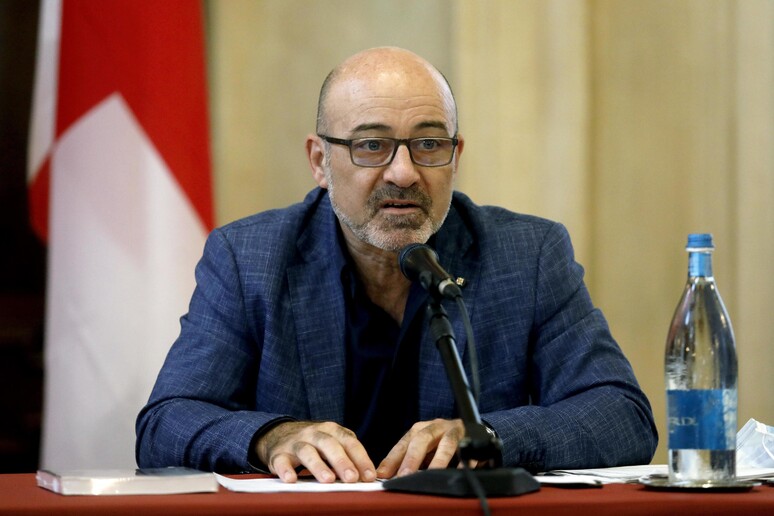Ecological Transition Minister
Roberto Cingolani on Monday defended the results achieved at
COP26 after Greta Thunberg described the the UN Climate
Conference that concluded last weekend in Glasgow as a failure.
The pledges made at the conference came up far short of
achieving the target of limiting global heating to 1.5° C higher
than pre-industrial levels.
But the nations also agreed to revisit and strengthen their
nationally determined contributions (NDCs) to the effort next
year at COP27 in Egypt, instead of in five years as originally
laid out in the Paris Climate agreement, and to "phase down" the
use of coal and to eliminate "inefficient" fossil-fuel
subsidies.
"We are faced with problems of a historic scale," Cingolani told
Radio24.
"The solutions are not simple, they are highly complex.
"We must be careful not to have expectations that are too high.
"I realize the young activists have to keep attention (on the
issue) high and criticize.
"But 194 States closing themselves in a room for two weeks to
find a solution is democracy, it is not blah, blah, blah," he
added, referring to the criticism Thunberg directed at world
leaders at the Youth4Climate conference in Milan before COP26.
"It doesn't seem to me that going around the streets shouting
and banging is effective".
He said the foundations for the "important results" achieved at
COP26 were laid down by the G20 summit in Rome chaired by Italy
at the end of last month.
"All the countries, including China and India, have agreed not
to reach 2° of global warming by the middle of the century, but
1.5°," he said.
"That half a degree is fundamental and it is a result that
stemmed from the G20.
"In order to sign the agreement, they asked for time frames for
the abatement of coal.
"If we have taken a hard line, they wouldn't have signed and
they would completely liberalized their activities".
ALL RIGHTS RESERVED © Copyright ANSA











